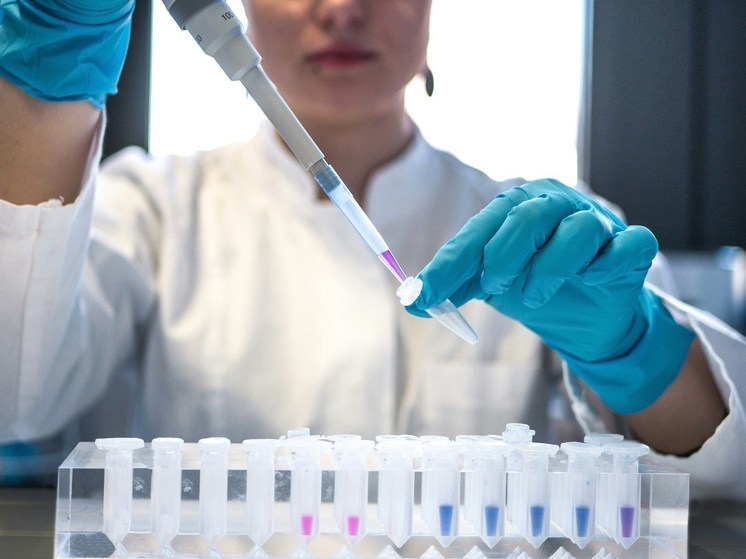But the life-saving procedure is valued at millions of dollars
Gene therapy has been hailed as a «medical magic wand» for an inherited tumor disorder. A single treatment changed the lives of patients with a potentially fatal disease in a first human trial.
 Photo: unsplash .com
Photo: unsplash .com
A groundbreaking gene therapy has been dubbed a “medical magic wand” after treatment transformed the lives of patients with an inherited condition that causes painful and potentially fatal swelling, The Guardian writes.
Patients who took part in the first human trial of the therapy experienced significant improvement in their symptoms, and many were able to stop taking long-term medication and return to their normal lives.
Dr Hilary Longhurst, principal investigator at Te Toka Tumai, City Auckland Hospital, said the one-time therapy appears to provide permanent relief from “very disabling symptoms” in her patients.
Hereditary angioedema (HAE) is a rare disease that affects approximately one in 50,000 people, notes The Guardian. It is caused by a genetic mutation that causes patients' blood vessels to leak. This disease causes periodic bouts of swelling that usually affect the lips, mouth, throat, intestines, arms and legs.
Bouts occur more than twice a week and last from several hours to several days. People may become bedridden if the tumor affects the intestines, and its disfiguring effect on the face may prevent people from leaving the house. The most serious flare-ups affect the throat and can lead to suffocation and death.
Cleveland, a 54-year-old from Suffolk who took part in the trial, has not had a seizure since he underwent therapy 18 months ago. “My physical and mental well-being has radically improved,” he said. – The randomness, unpredictability and potential severity of the attacks made trying to live their lives almost impossible. I spent my life constantly wondering if my next attack would be serious. Tumors are painful and disfiguring. I was embarrassed to go outside in case of an attack. I was hospitalized with tumors in my neck and throat that affected my ability to breathe.
Judy Knox, a nurse from New Zealand who also took part in the trial, said the therapy was «like a medical magic wand.» Before her diagnosis, she suffered from abdominal bloating with vomiting and severe pain that lasted for several days. Dentist work caused dangerous swelling in her mouth that threatened to suffocate her. “It changed my life,” she says.
Knox previously treated the condition with androgen drugs, but supplies were not always reliable. Now she has stopped taking medications and feels that she has begun a “completely new life.”
As The Guardian explains, HAE is caused by a mutation in the C1 inhibitor gene. When the gene stops working, people overproduce a protein called kallikrein. This leads to the accumulation of another protein, bradykinin, which is responsible for leaky blood vessels and swelling.
Ten patients took part in a small phase 1 study in the UK, New Zealand and the Netherlands. Each received an infusion of «nanolipids» designed using Crispr, a Nobel Prize-winning gene-editing tool, to enter liver cells and knock out the kallikrein gene. The therapy stops the body from overproducing bradykinin, with dramatic consequences for patients.
“It is life-changing for patients, says Dr Padmalal Gurugram, consultant in clinical immunology and allergy at Cambridge University Hospital. – My patient had attacks every three weeks, but this gentleman had not had a single attack for the past 18 months. He doesn't take any medications. This is amazing”.
Results from the first patients were published in the New England Journal of Medicine, and larger trials are currently underway. Doctors treated 25 more patients in the second phase of the study and hope to enroll them in the final third phase of the study next year.
Despite the impressive results, the therapy is not expected to be commercially available any time soon. As well as having proven effective in the remaining trials, this one-off gene therapy is one of the most expensive treatments in the world, and is far from new to the NHS, The Guardian points out.
Professor Paul Morgan, an immunologist from Cardiff University, called the results remarkable. “They demonstrate the potential to permanently cure HAE with a single treatment. Of course, larger clinical trials covering different types of HAE in different populations are now needed,” he said.
According to recent reviews, the cost of one-time gene therapy was between $1 million and $2 million, which means that treatment may only be available in rich countries, Morgan added. “However this study does offer the real prospect of a cure for some patients with HAE.
Dr Michael Tarzi, senior lecturer and honorary consultant at Brighton and Sussex Medical School, was also impressed. «This is an outstanding application of new technology that has the potential to offer a curative treatment for patients with HAE,» he said.
























































Свежие комментарии